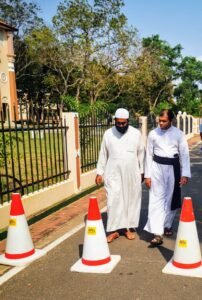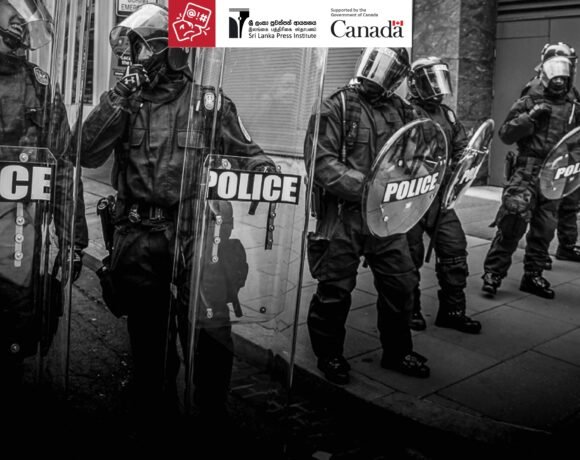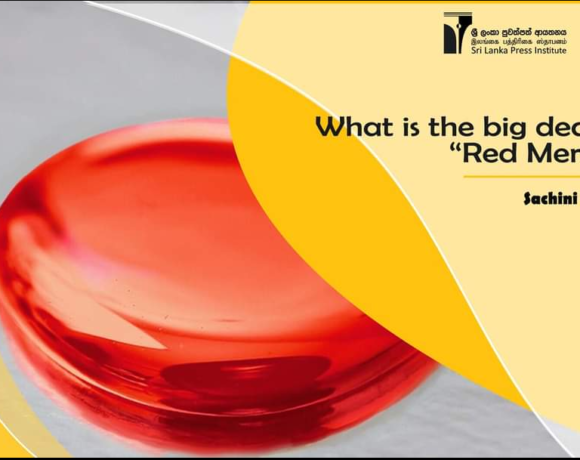
The peace bridge that connected the church and the mosque
Gayan Yaddehige
The three-decade war and terrorism built suspicion, hatred and mistrust, forgetting the people the humanity. The result was a society polarised between racial and religious lines. One community looked at the other with suspicion. A racist minority manipulated the context and created conflicts. Although various programmes were implemented in the post-war period to minimise ethnic disharmony, the embers of racial hatred remained under the ashes of the quenched racial and religious fire. A minor incident was sufficient to ignite a fire, and two years ago, an unprecedented series of attacks were launched by terrorists on Easter Sunday. The attacks were timed in a period of reconciliation being developed among ethnic communities, and suspicion and mistrust fixed again in the society.
The entire Muslim population in the country were looked down upon and treated with suspicion after these attacks launched by a group of few terrorists. The government had to ban social media several times to prevent people from pouring petrol into the burning fire. The situation worsened to the level of Sinhala people rejecting purchasing from the Muslim shops. Communities further departed from each other. At a crucial time, programmes were needed to build unity and harmony; we observed an excellent programme of ethnic unity in Anuradhapura. On the day two years were completed to the Easter Sunday attacks, the members of the board of Jumma mosque of Anuradhapura visited St. Joseph cathedral in the city and offered treatment to the devotees. The Buddhist community also took part in this programme.
The programme was conceptualised by Jayalath Bandara Senevirathna, former Provincial Councillor and chairman of Punarudaya programme. The organisation of the Women Affected by War, Women’s Front of Weva Bendi Rata and Inter-religious Collective joined hands with the programme.
“We suffered heavily due to the 30-year war,” said Jayalath Bandara. “People of Anuradhapura district suffered more than the people of other southern areas. Peace and reconciliation were restricted to mere words due to war. We did not see them practically implemented in society. We must give life to these words. Our activities matter in a context there are many people to promote suspicion, fear and hatred.
“Muslim people were afraid after the Easter Sunday attack. Sinhala people were afraid of sitting near a Muslim person on a bus. Many Sinhalese rejected to buy things from Muslim shops. I wanted to do something to minimise this distancing. I thought it was good to offer treatment by Muslim people to the Catholics who are returning from the church after commemorating the victims of the Easter Sunday attacks. I hoped it would be a small step to build peace among people.”
Mr. Senevirathna discussed this with Fr. Dileep and Eranda of St. Joseph’s cathedral of Anuradhapura. Then he joined with a group of members of the board of Jumma mosque of Anuradhapura led by Chief Moulavi Mohammed Gayum to launch the programme.
“All Catholic churches were under strict security on the day of the second anniversary of the Easter Sunday attacks,” described Mr. Senevirathna. “We were afraid of someone disrupting the programme. If such a thing happened, all efforts for reconciliation would be vain. Therefore, we did not give publicity to this programme. Muslim people offered a treatment of milk to the people who were returning from the mass. The treatment built relations among Muslim and Catholic communities. The priests of the Catholic and Muslim shrines met each other, discussed and improved their relationships. We need more programmes like this under the present context to set the scene for peacebuilding.”
The board member of Jumma mosque of Anuradapura, Mr. M.B. Saman also actively supported this programme.
“After the attack launched by Zaharan and the group, people looked at the entire Muslim population with suspicion. They ignored the fact that the extremists were a minority and pointed their finger to the whole of the Muslim population. Sinhala, Tamil, Muslim, Malay, Burgher and other communities live in this country. All these communities must join hands if we want to develop as a nation. Some people try to break this harmony for their political advantages.
“My family name is Deshye Gurunnanselage Gedara. That is a Sinhala family name. Will a country be saved for future generations if we divide and fight? The gap between Sinhala and Muslim people created by the Easter Sunday attack remains. Both of us must make sacrifices to improve the relations. I think both sides must start with minor moves. We shared the woes of the Catholic people who participated in the Easter Sunday mass. We can defeat the racist minority only if the peace-loving people unite to share brotherhood. Although this is a small step, we must have such minor alternative programmes everywhere in the country in the backdrop of the mainstream forces are spreading racism. That is essential for the wellbeing of the future generations.”





Muslim people welcoming the Catholics who are coming to the mass
தேவாலயத்தையும் பள்ளிவாசலையும் இணைத்த சமாதான பாலம்
පල්ලියත් දෙව්මැදුරත් යා කළ සාමයේ පාලම








